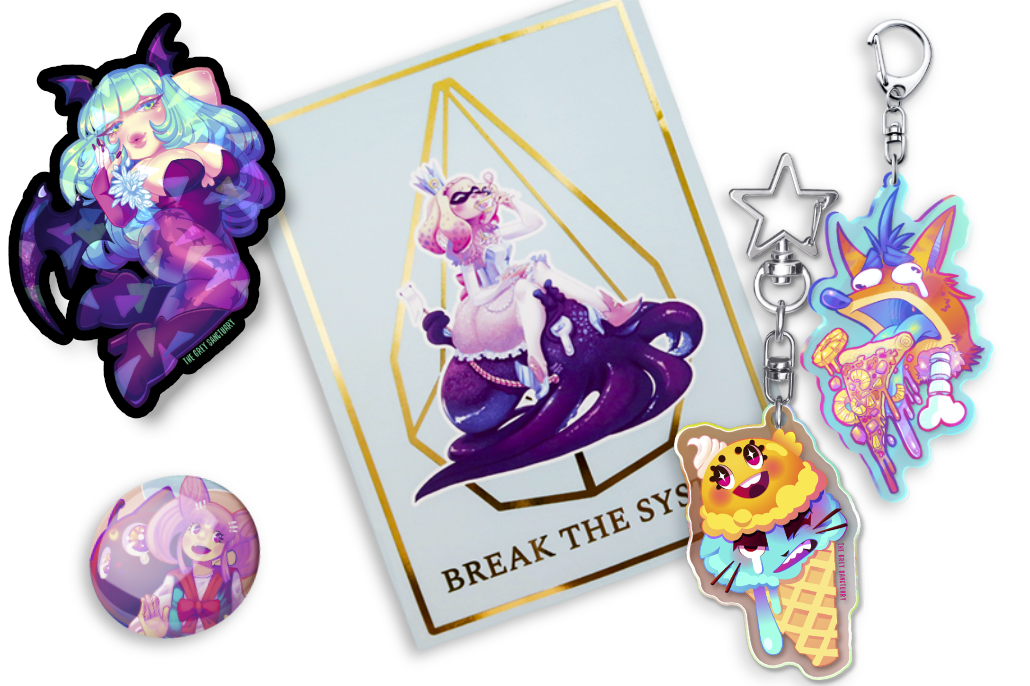

Little Cathedral Blog
How To Commission Professionally and Safely
I saw many artists asking about how to initiate the business of commissions safely and correctly, and I decided to make a simple list of all the essential things I could think of.
- Please learn about money conversion before accepting any job.
- Always ask for an upfront payment (50% is suggested) before initiating the project.
- Always initiate the transaction by sending first the invoice with all the correct details and settings.
- Use “PayPal Invoices” instead of “Goods and Services” since you can detail everything about the transaction and have a higher probability of successful protection against fraudulent/wrongful disputes.
- Be curious with your clients and ask them the appropriate questions. Document everything accordingly in your SOW (Scope of Work) as a backup and evidence.
- Always write or link your TOS in your PayPal invoices or any other payment platform.
- Explore and expand other payment processes to offer a variety to your clients for more flexibility.
- If a client wants to use the commission for commercial purposes, make sure to charge a commercial fee.
- Penalties and restrictions in contracts are necessary to maintain control and balance in your pipeline.
- Find out if there is a specific platform that is suitable for your commissions, such as VGen, Ko-Fi, or Artistree.io.
- Charging processing payment fees, such as PayPal fees, to the client is illegal and can impact your business negatively. Those deductions must be absorbed by your business.
- Remember to have your permits and licenses ready, and charge your sale taxes depending on your location, regardless of the income earned.
- Scammers are all about being in a hurry and persistent to do business their way. Learn their pattern by recognizing behaviors and keywords.
- Making the client or your audience part of your creative process (as viewers) by also showing your difficulties and achieving goals is a bonus.
- Have in hand clear, strict, detailed, and complete “Terms and Conditions” or TOS, including the contract, and make sure to cover any missing details or loops to avoid interpretations or miscommunication.
- Having official documents that record all the transaction details is important such as estimates, receipts, invoices, etc.
- Communicating with the client via email prevents messages from being edited or deleted by convenience.
- Always label your contracts correctly. “Commission” and “Work For Hire” are NOT the same and have different purposes.
- Make sure to select the correct delivery format in PayPal. Digital commission equals instant delivery/download vs. physical commission with package tracking.
- You can boost your sales and attract more gigs by creating “emotional value” in your services and products. The client not only trusts you, but also becomes part of your community.
- If you want to save time and facilitate communication when clients request more information about the commission, create an interactive form with specific answers and questions.
- Having a “referral program” where you reward your client (with whatever you like) each time they send you a “potential client” and successfully securing a new gig is a fun win-win.
- Don’t try to charge the same prices as other artists; charge based on your needs, demands, and expenses. Use the “market value” or your colleagues’ prices as a guideline, not a rule. We all have different priorities and responsibilities.
- Make sure to always send all your official documents in the same project such as your contract, alongside your TOS (Terms and Conditions) WOS (Work of Scope), estimate or invoice, addendum (Change of Order), receipt, etc. You will impress your clients with your professionalism, reliability, and organization.
- A professional or secondary line of communication is a must, for example investing in a secondary mailbox to keep your home address (addresses are vital in contracts and other official documents) from getting leaked or used in bad faith.
- Ensure to attempt several communications with the client via different platforms (text, email, phone, etc.) before assuming the client is ghosting. Life is hard and messages get lost or people focus on things that are challenging or a priority.
- Depending on your location, you must charge your respective taxes regardless if you are selling a physical/digital product or service to the client. It is recommended that you sort things out with your department and ask about permits or registration before initiating any work.
- You can penalize the client in your TOS by charging a flat fee or a % on the project when there is no response after X communication attempts, pausing the project abruptly, delaying payments, abandoning the project, etc. These details in your clauses will deter unwanted clients, and maintain full control of the project with “potential clients”.
This list may increase over time due to my expertise and experiences. Hopefully, this helps you out with the most basic but essential information.
Thank You For Reading!
If you like my work and documentation and wish to see more, please consider contributing to my growth and hard work with more exploration, investment, and website maintenance.












Leave a Reply